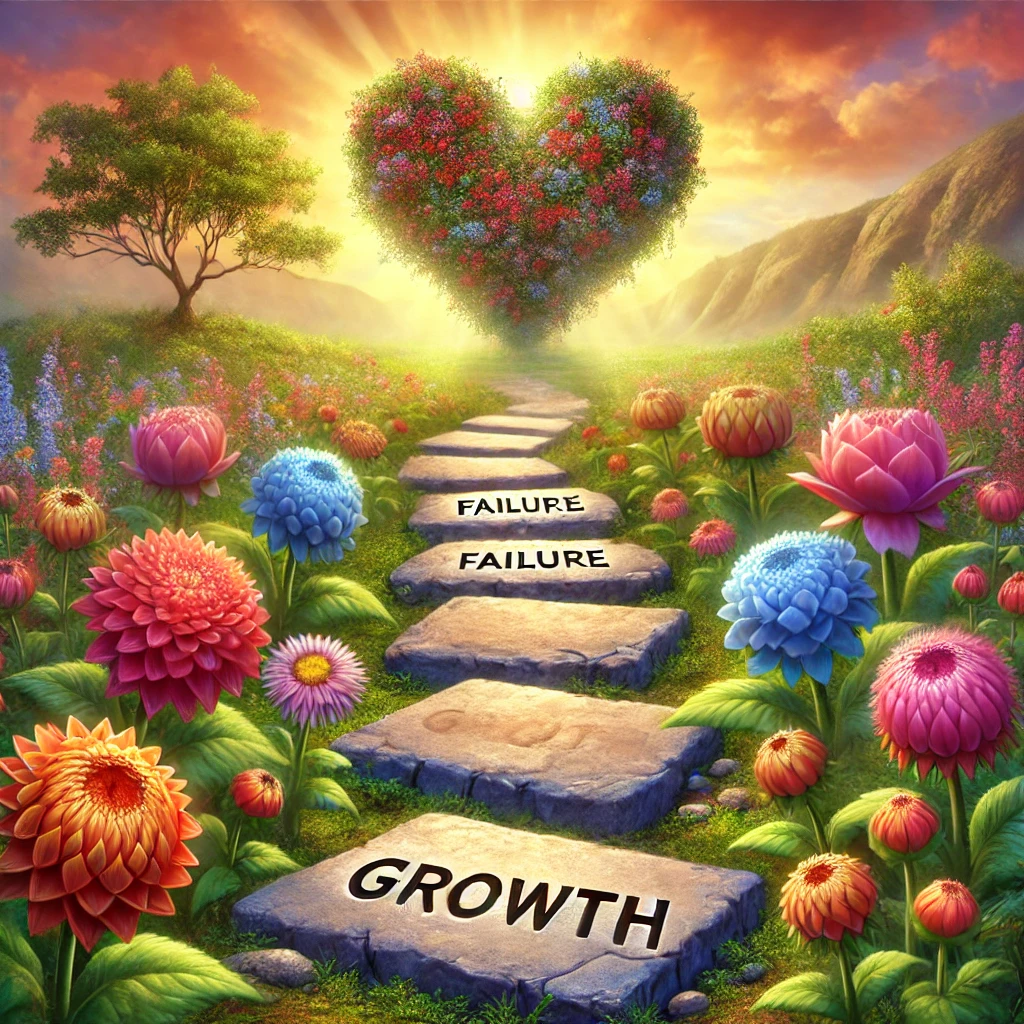You Have to Love Your Way Through the Failures
Because sometimes the road to success is paved with cringe-worthy moments and cosmic jokes.
Failure Isn’t the Villain of the Story
Most people treat failure like it’s the final boss in a video game—a looming monstrosity that must be defeated to achieve glory. But what if failure isn’t the boss, but your quirky sidekick? You know, the one who trips over its own feet but teaches you to laugh along the way?
“Success is stumbling from failure to failure with no loss of enthusiasm.” – Winston Churchill
Failure isn’t the opposite of success; it’s an awkward, messy step in its direction. If you view it as an enemy, you’ll spend all your energy fighting it instead of learning from it. But if you embrace failure with love, you transform it into a powerful teacher.
Love and Laugh Through the Stumbles
Think back to your most embarrassing failure—the kind that makes you cringe even in the shower. Now imagine giving that version of yourself a hug instead of a critique. Weird? Maybe. Effective? Definitely.
Loving your way through failures means allowing self-compassion to lead the charge. It means replacing self-deprecating thoughts like “I’m such an idiot” with “That was a hilarious learning curve.” Here’s the thing: when you lighten up, you open up—to new ideas, to better approaches, to growth.
Three Ways to Love Your Way Through Failure
- Celebrate the Effort: Even if the outcome was a spectacular dumpster fire, the effort deserves recognition. You tried, and that’s more than most people do.
- Learn, Don’t Lament: Instead of dwelling on what went wrong, ask, “What can I tweak next time?” Every failure hides a lesson like a pearl in an oyster—dig for it.
- Keep Going: Remember, success often looks like a series of failures stacked like pancakes. The stack only gets taller when you keep adding to it.
Failure as a Love Story
Picture this: you’re on a date with failure. It shows up late, spills wine on your shirt, and forgets your name. But it also has some killer advice on how to make the next date better. That’s the dynamic—you learn to tolerate its quirks because you know it’s helping you grow.
So the next time you fail, don’t punch the wall or throw a pity party. Instead, smile, take a deep breath, and say, “Well, that was interesting. Let’s try again.”




